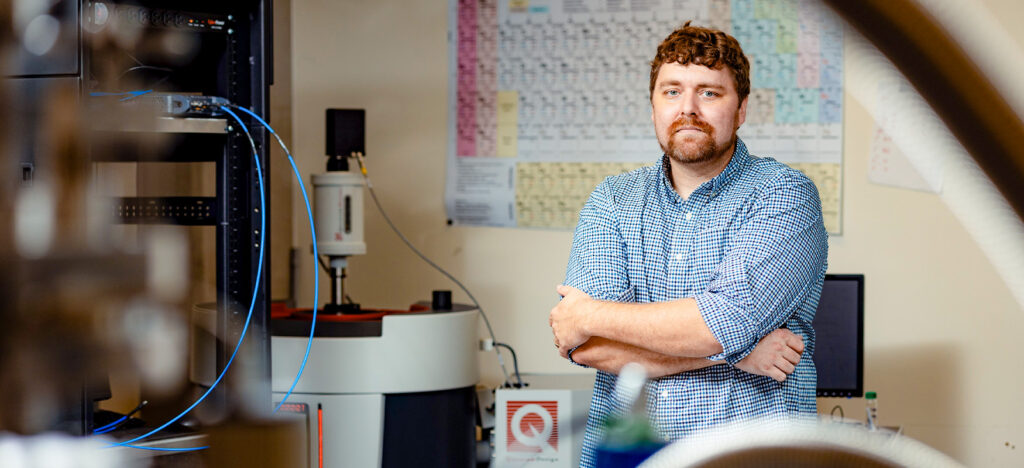MSE Assistant Professor Dustin Gilbert has received the Neutron Scattering Society of America’s Science Prize, which recognizes major scientific accomplishments or important scientific contributions within the last five years using neutron scattering techniques.
The award is given to only one recipient, and it’s given every other year. The prize consists of $2,500 and a certificate citing the contributions made by the recipient. Gilbert will giving an invited talk at the NSSA sponsored American Conference on Neutron Scattering (ACNS).
This year’s ACNS will be held in Knoxville June 23-27 at the downtown Crowne Plaza. MSE Assistant Professor Katharine Page is a programming chair for the conference, and MSE Professor Claudia Rawn is a local committee chair.
“This award is a huge honor,” Gilbert said. “There are so many really excellent researchers that use neutrons to perform meaningful and impactful investigations in virtually any field (chemistry, engineering, biology, physics), so to highlight our work with the science prize really is very meaningful.”
Gilbert is the 10th winner of the NSSA Science Prize. Nominees must be within 12 years of receiving their PhD degree. Gilbert received his bachelor’s in physics from the University of California at Santa Cruz in 2008, and received his PhD in physics from the University of California at Davis in 2014
Gilbert, whose work was sponsored by the Department of Energy, received the Science Prize for his research on characterizing the skyrmions, topologically stable spin vortices, in thin films using neutron scattering toward the goal of realizing the potential of utilizing skyrmions for spintronics applications. He is one of the leading researchers probing advanced materials with a particular emphasis on advanced neutron and synchrotron scattering techniques.
Gilbert has been using neutron scattering in new and unique ways to access new insight into magnetic skyrmions. In his time at UT, Gilbert has established a dynamic group that has made fundamental and important discoveries that probe spin phenomena in nanostructured materials.
“It encourages me that my peers wrote letters, and the committee members believe that my work is important and interesting and will have an impact on future research, both in skyrmions and in the use of neutrons,” Gilbert said. “More importantly, research is a team activity, and I couldn’t have done it without my students, my collaborators, and my mentors on these projects.”
Contact
Rhiannon Potkey (865-974-0683, rpotkey@utk.edu)
